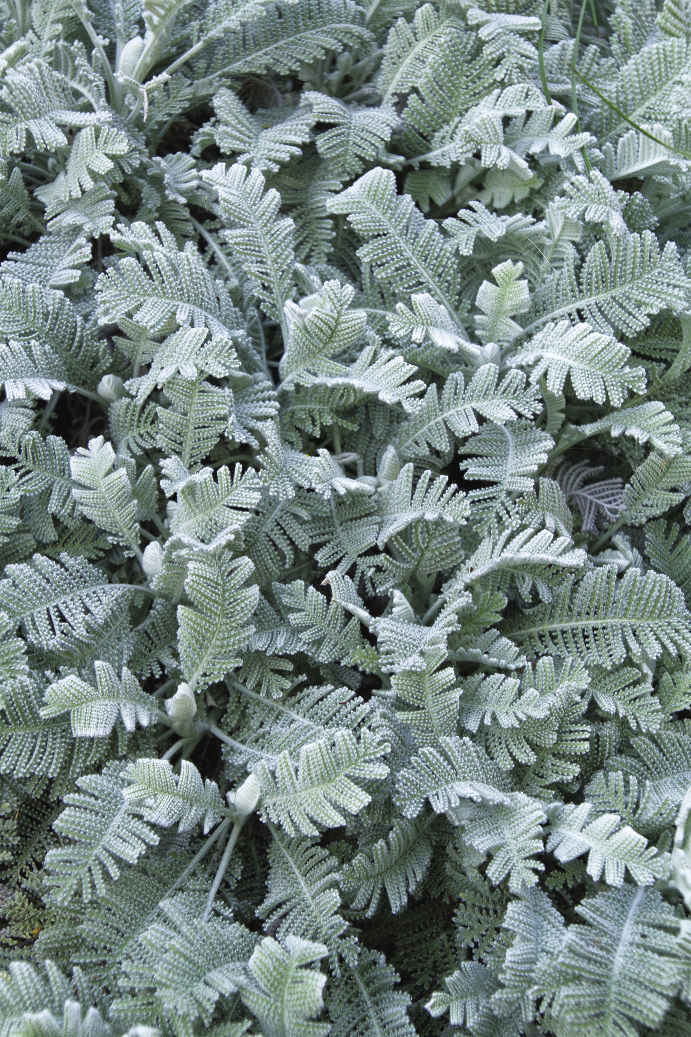
Mountain West

Jupiter’s beard (Centranthus ruber)
USDA Hardiness Zones: 5 to 8
Size: 3 feet tall and wide
Conditions: Full sun; poor to average, well-drained soil
Jupiter’s beard is a durable perennial that handles our region’s windy winters with grace. A milky fluid coursing through its cambium layer acts as an antifreeze during cold spells while also slowing water loss in summer. It is listed as a Zone 5 plant, but in my experience, it can survive Zone 4 winters. It produces dome-shaped clusters of dark pink flowers on 2- to 3-foot-tall stems in late spring. Expect reseeding.

Pineleaf penstemon (Penstemon pinifolius)
Zones: 4 to 10
Size: 16 inches tall and 10 inches wide
Conditions: Full sun; well-drained soil
Pineleaf penstemon evolved to endure cold winters and hot, dry summers in nutrient-poor soils. Narrow film-covered leaves defend the plant from wind and sun by limiting water loss. When not in bloom, this evergreen sits only 4 to 5 inches above the ground to further minimize exposure to the elements. For brilliant performance, water and fertilize sparingly. This may seem counterintuitive, but pineleaf penstemon wants to be shunned. It rewards neglect with scarlet and orange tubular flowers in early summer. Afterward, the foliage resembles that of a pine.

Creeping mahonia (Mahonia repens)
Zones: 5 to 8
Size: 1 foot tall and 3 feet wide
Conditions: Full sun to partial shade; moist, well-drained soil
This evergreen subshrub thumbs its nose at winter and provides four-season interest. To survive, the leaves of creeping mahonia feature a water-conserving waxy coat that can make or break a plant in our Mountain West winters; those evergreen leaves also hold snow around the plant as insulation. In spring, creeping mahonia produces bright yellow flowers that contrast nicely with its dark green leaves. These flowers are followed by deep blue berries at the end of summer. In late autumn, the leaves turn a beautiful burgundy red and last through winter.

Partridge feather (Tanacetum densum ssp. amani)
Zones: 4 to 9
Size: Up to 10 inches tall and 15 inches wide
Conditions: Full sun; sandy, well-drained soil
Partridge feather is a ground cover with foliage that resembles—you guessed it—the plumage of a partridge. Its silvery blue color helps dissipate heat from intense sunlight, and the fuzzy filaments on the leaves reduce water loss. Keep partridge feather under dry conditions. I made the mistake of watering it once a week in summer, and the plant perished. I now never give it a drink, and it thrives.

Photos: Doreen Wynja; Courtesy of Tom Heald; Jerry Pavia; Millettephotomedia.com


















Comments
Log in or create an account to post a comment.
Sign up Log in